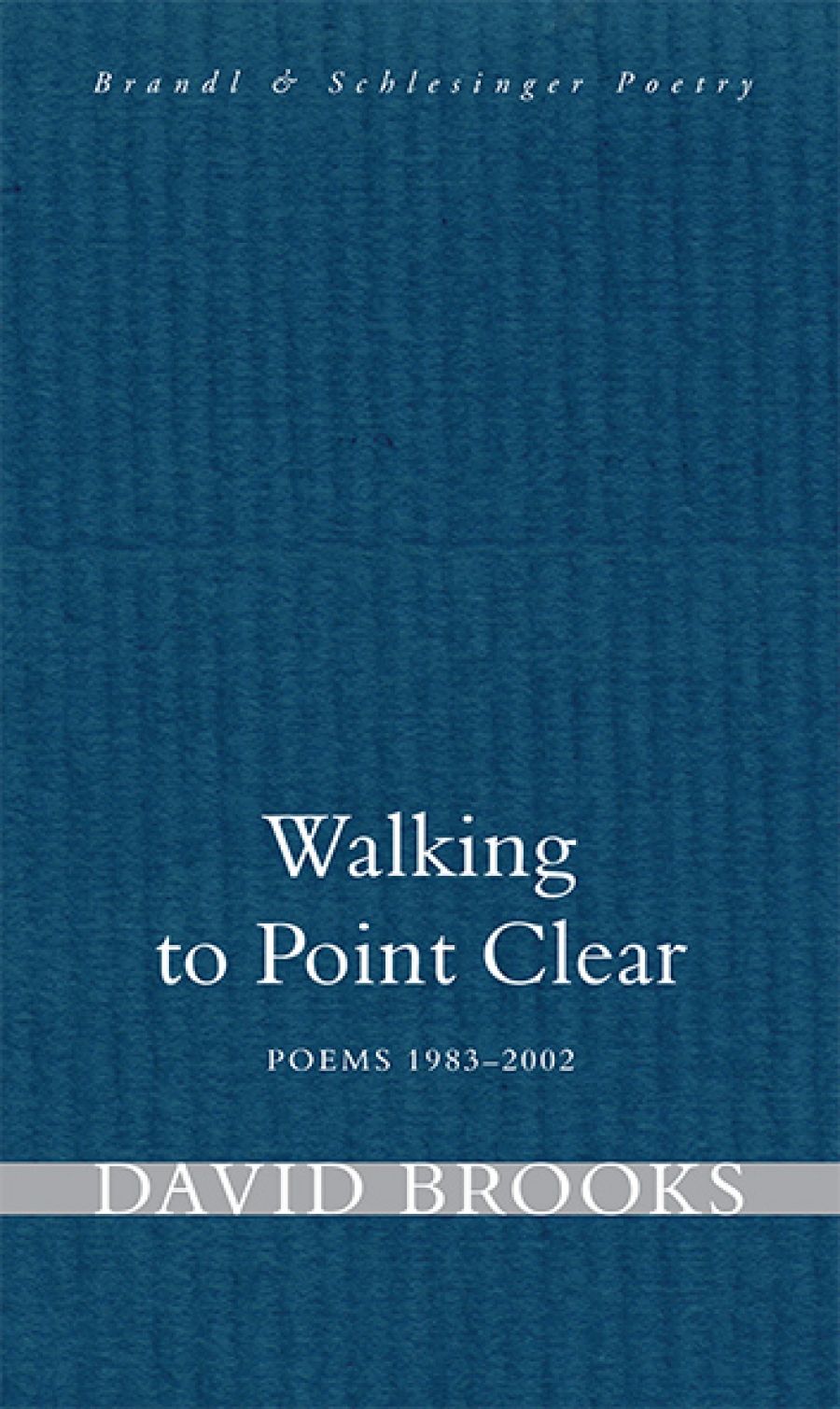
- Free Article: No
- Contents Category: Poetry
- Review Article: Yes
- Article Title: Love, emptiness
- Online Only: No
- Custom Highlight Text:
At first, many of these forty-eight poems from two decades struck me as almost self-indulgent and mundane: short lyrics about family life, eating, drinking, dreaming of Valparaiso, lemons, the Molonglo River; though there was often an underside of premonition, discontent, and a stillness that made me think I hadn’t really understood. In the first group, ‘One Hundred Nights’ bothered me: ‘When will it end / this waking / while others sleep, / this herding out on the ghost fields? / the flesh / whispering / its impossible desires / the bones / murmuring their Kali mantra / love, emptiness / love, emptiness.’ However, on my next reading, some of the second group struck me with autumnal clarity. From ‘Brown Pigeon’: ‘eyes / plucked out, feathers / scattered, / maggots / when I turn it over / writhing in the black mess near the heart’, where the image of the dead bird is an iconic memento mori.
- Book 1 Title: Walking to Point Clear
- Book 1 Subtitle: Poems 1983-2002
- Book 1 Biblio: Brandl & Schlesinger, $22.95 pb, 79 pp
- Book 1 Cover Small (400 x 600):

- Book 1 Cover (800 x 1200):

I turn to you
and whisper
but it is only the bones
longing
for ending
only the body
aching for distraction.
I began to see other worlds behind these poems that the foreground hearkens towards. I remembered Brooks’s foreword to Poetry and Gender: Statements and Essays in Australian Women’s Poetry and Poetics (with Brenda Walker, 1989): ‘Silence is a part of all writing. The not-said speaks as often … as the said ... is present throughout, and is as much a subject as its counterpart.’ These are lucid, interlocutory poems that inscribe absences from beyond the poem’s frame.
Group Three is the most sustained and impressive of these ostensibly modest, but emotionally and intellectually arresting, poems. In particular, there’s the five-part ‘The Cormorant: Elegy for R.F. Brissenden’ where, playfully, unsentimentally, ‘Your body / already the ant’s kingdom, / eyes / in the high branches / staring down the stars’. Rejecting the kind of transcendence of David Malouf’s An Imaginary Life for a more postmodern existentialism, Brooks writes: ‘As if there were anything other / than being what we are / … / saying now, saying this / in its thousand forms, / its hundred thousand forms, / this.’ This group also contains the ironic but emotionally risky ‘Mangoes’ (see the final stanza) as well as the metaphysical ‘Flying Fox Sonnets’, which begin: ‘The male of the genus Pteropus / has cock and balls just like a tiny man / and with his mate / makes love for up to eighteen hours at a time, / littering the night about them with their screams.’ Brooks develops the idea of this mating and, in the next sonnet, the birth of the new flying fox, to create a sinuous and witty sense of the relationship between existence, nothingness and poetry.
Although ‘Depot Elegy’ begins on a harsh, but pithy, note – ‘The retired sawmiller, great arsehole’ – it takes us to the heart of this collection with its impossible paradox suggested in the volume’s title: that it is possible to get to Point Clear and that the view might offer us something of understanding. An uneasy romanticism – ‘All night I have lain here / listening to the owls / and the plash of wallabies in the undergrowth’ – is qualified by the poem’s increasing sense of mortality.
Group Four brings us to ‘Almost Winter’, with its struggle to transcend a Keatsian ‘negative capability’ to something more Buddhist: ‘to look at objects / from the point of view of the objects.’ The poem’s admission of failure ‘to breathe with a stone’s breath … / see with a river’s eye’ and to be stuck in humanity is a testament to Brooks’s capacity to play with poetry’s fine dissembling.
In the final section, there are a couple of admirable poems about the difficulties of writing, as in ‘So Little’: ‘A subtler sense / of the indefinite article, infinitives / that will not be split / by anything: patience, work, suffering, anger, / not even love.’ Perhaps one of the best in this slim volume of high-quality work is ‘The Vision of St Eustace’ (like me, consult your dictionaries of hagiography). It begins almost as a painting poem, like ‘Musée des Beaux Arts’, with details of a French village in which war is remembered by the ‘fallen almonds’, ‘granates / still cling to the winter bushes’ and the ‘slender glider’ that has replaced the ‘Mirage chasseur’. Then the last lines: ‘In the White House, half / a century away, / the President wipes his prick, / declares another war against Iraq; / on the tarmac, “intelligent” missiles sit / in cold and steely silence, unable to think / of what they are about to do.’ The shock is almost palpable. This is fine, wise poetry that rejects the garrulousness of the bush ballad traditions and the contemporary loquaciousness of a Les Murray, the postmodern urbanity of a John Tranter, the didacticism of a Mark O’Connor, the vernacular satire of a Bruce Dawe, the patrician irony of a Peter Porter – to write for the moment, of the boys. Brooks is an outsider here.
Tom Shapcott’s evocative and insightful essay ‘Poetry’ (Southerly, 3/1992) claimed: ‘poetry is the link between language and song; at another point, it is the link between rhythm and song, or between space and silence. The drama of withholding what is expected.’ Some of David Brooks’s poems almost disappear into thin air – they are so evanescent – but many have the strength and particularity of membranes, their language stretching towards meaning.


Comments powered by CComment